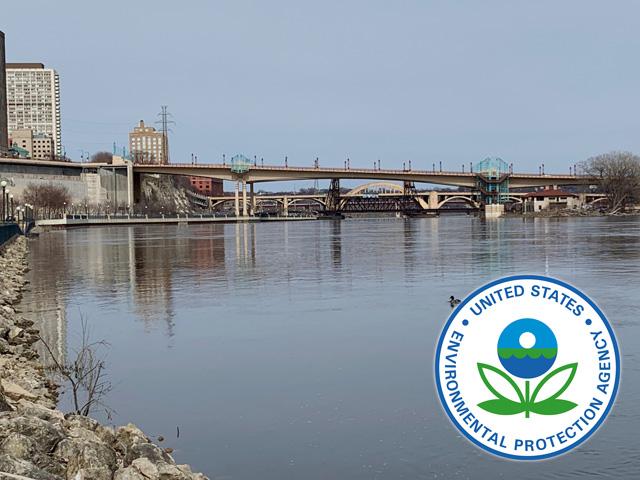EPA Plans WOTUS Rewrite by September
Biden Administration Set to Issue New WOTUS Rule by Sept. 1, Asks for Court Stay
LINCOLN, Neb. (DTN) -- EPA plans to complete a proposed rewrite of the 2023 waters of the U.S. rule on or before Sept. 1, 2023, after a Supreme Court ruling in May essentially struck down the Biden administration rule.
The agency filed a motion to stay an ongoing WOTUS lawsuit in federal court on Monday, telling the U.S. District Court for the District of North Dakota that a rewrite is on the way.
"Federal Defendants respectfully request that the court stay this case," EPA said in its motion. "Good cause exists for this request. Federal defendants are developing a new rule to amend the 2023 rule consistent with Sackett."
The agency said in its motion it would be best to preserve resources and conserve "judicial economy" by staying the case. The federal court in North Dakota had issued a 24-state preliminary injunction against the Biden rule.
"Federal defendants' new rule may resolve, or at least narrow, the issues in this case," the agency said in the motion. "A stay will allow the parties time to assess the new rule and determine whether to continue to litigate this case. A stay will also serve the interest of judicial economy because it may result in avoiding unnecessary litigation and/or narrowing the issues."
The injunction is in effect in Alabama, Alaska, Arkansas, Florida, Georgia, Indiana, Iowa, Kansas, Louisiana, Mississippi, Missouri, Montana, Nebraska, New Hampshire, North Dakota, Ohio, Oklahoma, South Carolina, South Dakota, Tennessee, Utah, Virginia, West Virginia and Wyoming.
In addition, an injunction is in place in Texas and Idaho as a result of a lawsuit filed in Texas.
P[L1] D[0x0] M[300x250] OOP[F] ADUNIT[] T[]
In Sackett v EPA, the Supreme Court ruled that a tract of land owned by Michael and Chantell Sackett in Idaho was not a WOTUS. In addition, the court struck down the agency's use of the so-called "significant-nexus" standard to make Clean Water Act determinations.
EPA and the U.S. Army Corps of Engineers have used significant nexus for years. The standard essentially allows regulators to claim jurisdiction over even dryland features, if there is scientific evidence of a chemical and biological connection to an actual navigable water such as lakes, streams and rivers.
The Sacketts have filed many appeals on the EPA decision in the past 15 years.
The U.S. Court of Appeals for the Ninth Circuit had sided with EPA's wetland assessment on the Sacketts' property. The court's ruling sends the appeals court decision back to the court for reconsideration.
Justice Samuel Alito said in writing the majority opinion that EPA's interpretation of the law "gives rise to serious vagueness concerns in light of the CWA's criminal penalties."
"Due process requires Congress to define penal statutes 'with sufficient definiteness that ordinary people can understand what conduct is prohibited,'" Alito wrote, "and 'in a manner that does not encourage arbitrary and discriminatory enforcement.' Yet the meaning of 'waters of the United States' under the EPA's interpretation remains hopelessly indeterminate.
"The EPA contends that the only thing preventing it from interpreting 'waters of the United States' to 'conceivably cover literally every body of water in the country' is the significant-nexus test."
Alito's ruling noted in defining "waters of the U.S.," the court revisits what has been "a contentious and difficult task." Alito said the phrase "waters of the U.S." has sparked decades of EPA action and litigation.
The boundary between "significant" and insignificant is far from clear, Alito wrote.
EPA argued that "waters" also include wetlands. But Alito points to the presence of puddles and noted in an earlier decision that ponds are not considered part of waters of the U.S.
Read more on DTN:
"EPA Keeps Fighting on Biden WOTUS Rule," https://www.dtnpf.com/…
Todd Neeley can be reached at todd.neeley@dtn.com
Follow him on Twitter @DTNeeley
(c) Copyright 2023 DTN, LLC. All rights reserved.



